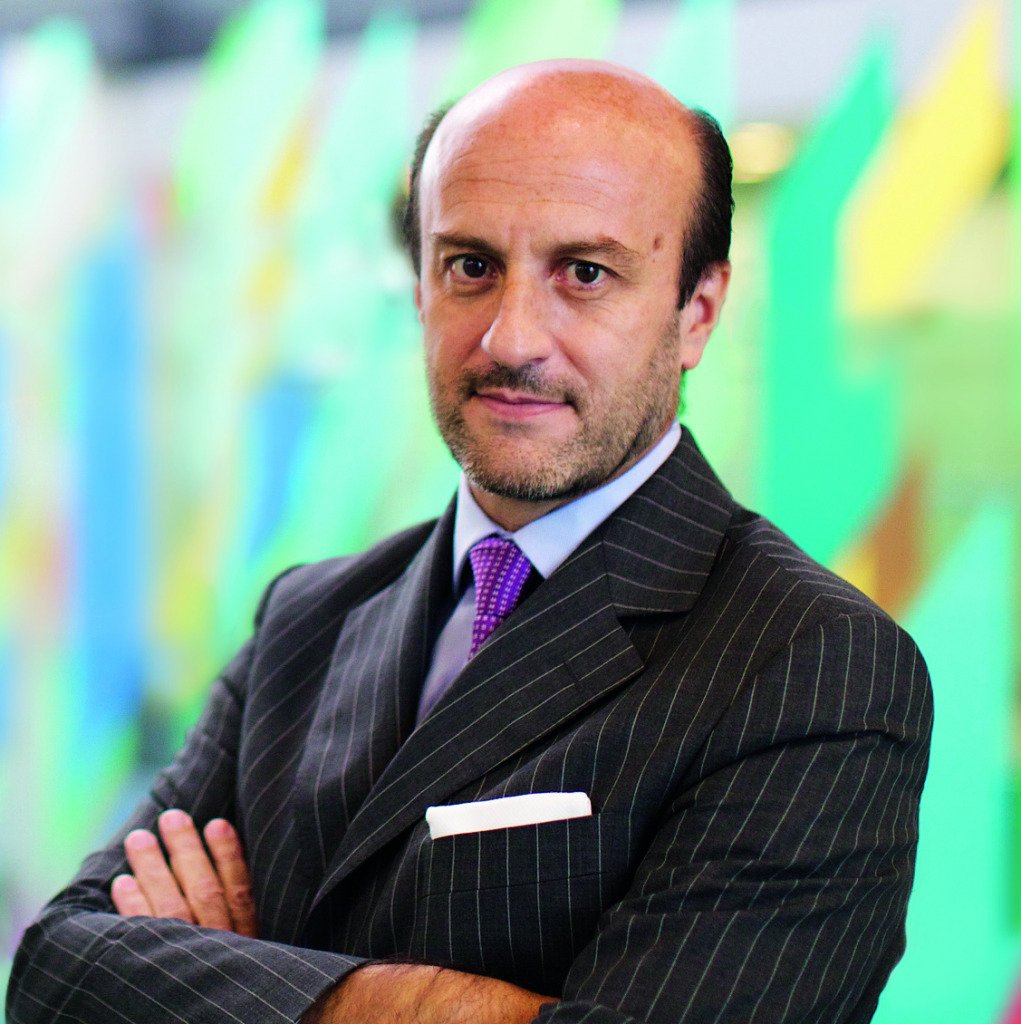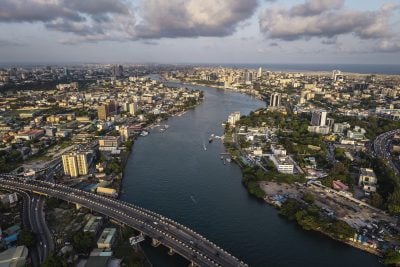
Despite the impact of the pandemic, recent activity in Africa’s capital markets suggests that investor appetite for risk has not fully subsided. Côte d’Ivoire returned to international capital markets in November, raising €1bn ($1.2bn) with the first “post-pandemic” eurobond. At the start of January, Benin went to market with a €1bn eurobond, and a few days later the Bank for West African Development (BOAD) raised €750m. All three bonds were oversubscribed.
Miguel Azevedo, head of Corporate and Investment Banking for Middle East and Africa (ex South Africa), has been upbeat ever since he started covering the continent given the opportunities that it offers to entrepreneurs and investors.
It is part of his job to look at the upside potential and work towards making it possible, he says, but he does admit that market conditions are more challenging now in a Covid world, and naturally not as buoyant as they were five or six years ago. In any case the potential is there and many other things have moved in the right direction.
As proven by the Benin bond issuance, where Citi played the leading role, Azevedo believes there will be a return to debt capital markets for many African sovereigns as countries respond to the enormous needs for emergency financing highlighted by the pandemic. And for those looking at refinancing and restructuring their liabilities, there is plenty of capital out there looking for higher yields, he says.
Yet echoing fears that Africa is taking on an unsustainable debt burden to fund short-term liabilities, Azevedo argues that what the continent needs is “less debt and more equity; debt deals with short-term liquidity needs and equity deals with long-term solvability solutions”.
That’s where the massive need for additional corporate sector finance comes in. Privatisations, mergers and acquisitions and foreign direct investment all remain on the horizon this year, although activity could be muted, he argues.
He anticipates some new listings on the continent’s stock exchanges, albeit limited, and instead believes that the continent is more likely to see existing companies actively trying to grow their capital base by going to the markets. Why is this so? It isn’t a shortage of money, he notes, but a lack of conviction after investors were burnt by previous fundraisings promising strong returns.
“Global investors are primarily from Europe and the US, and Asia a distant third. There isn’t a shortage of money right now, but rather a shortage of conviction because investors have had a tough few years. Many listings from the past few years are trading well below their IPO price, although more recently we have seen a strong surge in the stock prices of the most promising companies in the continent.”
Those companies brave enough to fundraise this year will need to show evidence of strong management teams, a strong market position, growth opportunities, good governance and diversification. If they can tick those boxes, they may find a willing partner in global companies who are generally more willing to take the long view.
“There are good companies out there that will list on the exchanges this year and those that do come to market will offer an opportunity for investors, because they will do so at attractive valuations… global companies who tend to take a long-term position on markets will also use this opportunity to acquire assets in different countries given that company valuations will be somewhat depressed,” he adds.
One particularly attractive story remains the long-planned liberalisation of the telecoms sector in Ethiopia, the only country with a population in excess of 100m still to liberalise its telecoms sector. Two telecoms licences and a stake in the state-owned Ethio Telecom are exciting interest from foreign telcos.
While the licences exclude e-banking and mobile payments – important future areas of growth – a successful conclusion of the programme will tell the rest of the world that Ethiopia is open for business in other sectors including financial services, argues Azevedo.
The establishment of a new stock exchange also signals to investors that the country is open for business, and investors hope that this may be a further spur to the expansion of a banking sector that appears to be well capitalised but has long been protected from external competition.
“The setting up of a stock exchange, even if it will have a small impact, is a further confirmation of the market economy model the country is adopting,” he says.
Attracting infrastructure investment
Elsewhere, there is likely to be tough competition for scarce funds. Given the tough environment, Azevedo would like to see more investment by pension funds and patient capital in infrastructure, which he says is not yet taking place in a significant manner on the continent.
Governments have an important role to play by providing guarantees and comfort to investors, as well as creating regulatory frameworks which allow the private sector to oversee infrastructure development, he says.
“Governments don’t need to own the infrastructure, and secondly you cannot provide infrastructure at zero price. Governments can provide certain guarantees, to provide some comfort to investors, but really their role is to create the regulatory framework whereby they play a role as a regulator and allow the private sector to oversee infrastructure development, allowing for commercial pricing,” he adds.
Yet to convince investors to come in on long-term projects takes time and requires trust building, Azevedo says. Governments, already highly leveraged, are unable to offer the guarantees they could previously.
Creative thinking required
Creative thinking is necessary – governments could look to privatise assets or put infrastructure projects like airports under long-term concession agreements.
The capital raised can then be ploughed into new projects in which governments can enter as co-investors in order to share the risk with the private sector. Governments can attract further specialised investment by highlighting the social good of investment projects using environmental, social and governance criteria.
“When it comes to ESG I remember the prospectus for Seplat back in 2014 that we helped IPO. The environmental and community impact was central to their strategy, so these factors of environment, social impact and governance have been part of the business model of many successful African companies,” Azevedo recalls.
According to the Global Impact Investor Network’s 2020 survey, 43% of impact investors have funds allocated in Africa and 52% planned to increase their exposure on the continent in the next five years. In October, the World Bank launched a Sovereign ESG Data Portal: a free online platform that provides users with sovereign-level environmental, social and governance (ESG) data, suggesting that investors are increasingly keen on the idea.
The portal is designed to help investors better align ESG analysis with key sustainable development policy indicators and analysis, as well as to increase data transparency and support private sector investments in emerging markets and developing countries.
Africa’s post Covid-19 “Building back better” agenda provides a further opportunity to revisit how projects are structured to accelerate investment. That leads Azevedo to a positive, if measured, assessment of the continent’s investment prospects in 2021.
The Covid-19 pandemic has highlighted the extent to which Africa still needs to match its needs with the opportunities that only global investors can provide. And there is undoubtedly capital in global markets and on company balance sheets that is seeking opportunities.
“I’m positive, but in a measured manner,” says Azevedo. “The gap is so massive that you can only be optimistic [about Africa]. The issue is how you materialise that gap into returns. It is in the interest of all, and in particular of Europe, to support Africa and to boost investment in Africa. I believe Africa will respond well and will provide the right risk-return tradeoff to investors.”
Want to continue reading? Subscribe today.
You've read all your free articles for this month! Subscribe now to enjoy full access to our content.
Digital Monthly
£8.00 / month
Receive full unlimited access to our articles, opinions, podcasts and more.
Digital Yearly
£70.00 / year
Our best value offer - save £26 and gain access to all of our digital content for an entire year!
 Sign in with Google
Sign in with Google 



